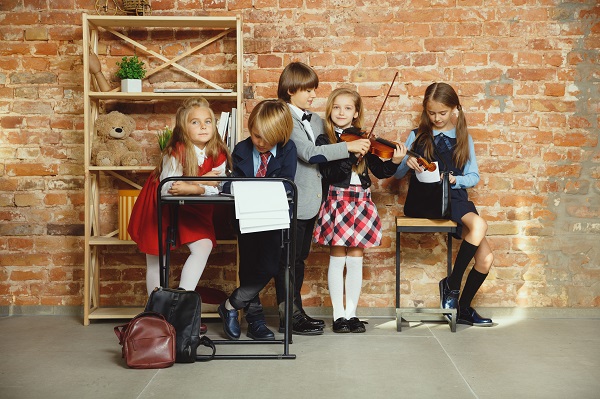
What Makes a Music School Stand Out? Essential Qualities to Look For
Selecting a music school is a significant decision that can shape a student's musical journey and future opportunities. With numerous institutions offering a variety of programs, understanding what sets a top music school apart is crucial for making an informed choice.
Here are the key qualities that make a music school stand out:
1. Highly Qualified and Experienced Instructors
The caliber of a music school’s faculty is one of the most important factors to consider. Instructors should not only have extensive experience and formal training in their instruments but also be adept at teaching students of varying skill levels. Effective teachers are those who can convey their expertise in a way that is engaging and accessible, adapting their methods to fit each student's learning style. Researching faculty credentials and seeking reviews from current and former students can provide insight into the quality of instruction.
2. Diverse and Comprehensive Curriculum
A music school should offer a well-rounded curriculum that covers various aspects of music education. Look for schools that provide instruction in music theory, best music lessons, history, ear training, and performance techniques. A diverse curriculum ensures that students gain a broad understanding of music, which enhances their overall skill set. Additionally, schools that cater to different age groups and skill levels with tailored programs demonstrate a commitment to meeting diverse learning needs.
3. Advanced Facilities and Resources
The physical environment of a music school plays a crucial role in the learning experience. Schools should have modern facilities, including well-maintained practice rooms, quality instruments, and up-to-date technology. Advanced resources and equipment facilitate effective learning and practice, enabling students to fully engage with their musical education. Schools that invest in their facilities show a commitment to providing a high standard of education.
4. Opportunities for Public Performance
Exposure to live performance is an integral part of musical education. Music schools that offer regular performance opportunities, such as recitals and concerts, help students apply their skills in real-world settings. These experiences are essential for developing stage presence, confidence, and performance skills. Schools that prioritize performance opportunities demonstrate an understanding of the importance of practical application in a student’s development.
5. Evidence of Successful Outcomes
Evaluating the success of a music school can be gauged by the achievements of its students. Schools with a history of producing successful musicians or graduates who have pursued notable careers in music often have effective programs. Look for testimonials from alumni and examples of student achievements to assess the school’s impact on its students.
6. Supportive and Engaging Learning Environment
A positive learning environment fosters student growth and motivation. A music school that provides personalized support, constructive feedback, and a collaborative atmosphere helps students thrive. Ensure that the school promotes a nurturing environment where students feel encouraged to excel and overcome challenges.
7. Transparent Communication and Administration
Clear and efficient communication between the school and students or parents is essential. The best music schools provide transparent information regarding their policies, schedules, and fees. Effective administrative practices contribute to a well-organized learning experience and build trust with students and their families.
8. Active Community Engagement
Music schools that engage with their local communities often offer additional benefits, such as workshops, outreach programs, and community performances. Community involvement can enrich students' educational experiences and provide valuable networking opportunities.
Selecting the ideal music school is not just about ticking off a checklist; it's about finding a place where your child's musical potential can truly flourish. Look beyond the surface and choose a school that resonates with your child's passion and aspirations, ensuring a foundation for both immediate enjoyment and long-term success in music.

